Reacting to the closure
Although students at the University of Chicago were officially informed of the school closure due to COVID-19 March 12, Sam Holtzman (’19) said the school newspaper, The Chicago Maroon, actually broke the news to students the day before.
“Somehow an adult that lives in a dorm leaked [the closure] to the school’s newspaper,” he said. “The administration didn’t tell us until the next day. It was weird because we weren’t sure for maybe 24 hours it was happening.”
Will Sayre (’17), who goes to Rice University, said he was in a unique position because a faculty member tested positive for COVID-19 at his school before other colleges started to close.
“They said that person had been in a building, and they had sanitized that building …, but you never know with this kind of stuff,” he said. “It’s super contagious, and they said he interacted with 17 people who had been quarantined, but I just felt like it was going to escalate inevitably.”
Having almost half a semester taken away from you from the precious four years that you have, it’s really sad.
— Mariam Sousou ('18)
Sayre said Rice initially closed campus the week of March 1, but told students classes would resume in two weeks. However, students were notified March 12 that classes would move to online learning for the rest of the semester, and they had to move out by March 25.
“They gave everyone about two weeks notice, and Rice was really nice because you could petition to stay on campus,” he said. “We still have about 300 people on campus, if they’re international or low-income, and they can’t afford anywhere else.”
On the other hand, Mariam Sousou (’18), who goes to Harvard, said she was only given a few days’ notice before being told she would have to leave campus by March 15.
“Everything was normal on Monday,” she said. “We got an email at 9 a.m. [on Tuesday] saying that we had to leave by that Sunday.”
Sousou said that she felt jolted when she found out that Harvard would be closing.
“The initial response was shock, and I didn’t internalize it later until that day,” she said.
Upon hearing the news, Sousou said that she was upset that she was going to miss almost a semester of school.
“Having almost half a semester taken away from you from the precious four years that you have, it’s really sad,” she said.
Similarly, Holtzman said that he was “unbelievably sad” by the closure and that it resulted in a chaotic atmosphere.
“It was crazy, the night that that article came out … there was this crazy energy in the dorms,” he said. “Everyone was in the hallways crying, calling their families, and it was really grim.”
One group of students who took university closures particularly hard are college seniors. Sousou said that the months being missed are the best time for Harvard seniors as everyone finishes most of their work and can focus on enjoying themselves. For Sousou, it was “heartbreaking” to watch her senior friends when the closure was announced.
“It was so depressing to watch,” she said. “People would walk around the streets crying. It’s the quickest goodbye possible, and time goes so much faster when you know that there is an end.”
Consequently, Sousou said the seniors tried to make the last few days as enjoyable as possible.
“From Tuesday to Sunday, it was kind of surreal; there were parties day to night,” she said. “No one was stopping because this is [their] senior week, so no one went to class, and everyone was hanging out. It was crazy, but it was fun.”
However, Sayre said that, on top of the sentimental aspect, college seniors are struggling with the added stress of thinking about their future. Due to COVID-19, job interviews, research and internships have been canceled.
“Some of them don’t know where they are going to stay,” he said. “Some of them were gonna graduate and then go straight into work, and now that’s all very much in limbo. Logistically, it’s become a big headache for people.”
Holtzman said that the time before students had to move out was crazed not only because of sadness and shock, but also because everyone had to plan how they were going to get home.
“It was definitely the craziest couple of days in terms of emotions and trying to figure out plans,” he said.
University responses
Sayre said that his university handled the situation relatively well by giving its students enough time to leave campus.
“Rice has handled it pretty well [by] making sure people get refunded,” he said. “If you needed to stay on campus, you could, and they gave people adequate time to [move out].”
Contrastingly, Holtzman said that he doesn’t think his university handled the situation well because of the lack of transparency regarding the decision.
“It just really felt like they … were too afraid to make a decision, and it ended up horribly with the newspaper telling us, and everyone was so confused,” he said. “That kind of uncertainty that, I would say … they caused, that really hurt a lot of people, and it really caused a struggle for a couple days.”
However, Holtzman said that although he thinks that his university could’ve done a better job of communicating with their students, he recognizes that this was a difficult time for the school.
“In the end, we know it’s not their fault, but if they could’ve just told us more what they were planning on doing, it would’ve made our lives a little bit easier,” he said.
Similarly, Sousou said that Harvard handled the situation quite poorly for a few reasons.
“I think Harvard made multiple mistakes along the way,” she said. “The first mistake was giving us such a short amount of time to move out … The school didn’t provide storage for us, so we had to figure out storage, get plane tickets home and figure everything out in a matter of six days.”
Also, Sousou said that the week after everyone moved out was their spring break. However, she said that many students still had to take exams over that break, and that online schooling started the next week.
“Because they didn’t hold midterms the week we had to move out, the midterms were moved to our spring break, which we only had a week of,” she said. “They didn’t give us a long enough break to adjust.”
My brother, he works, my sister works, I don’t know if we’re ever going to have a time again where all of us live in the same house for at least a month. It’s kind of a special moment in that regard.
— Will Sayre ('17)
Sousou said that the way Harvard handled the situation made many people upset.
“We were all really angry,” she said. “[I felt] anger at the school for not organizing it properly and not giving us enough time, notice or resources to help us move out on such short notice.”
Despite the inconvenience, Sayre said his university’s closure was warranted. Rice is neighbors with the largest medical center in the world, the Texas Medical Center, and Sayre said they recommend the campus closure. He said the communal nature of a university makes it particularly easy for illness to spread.
“The problem with a college campus is that we all live there, we eat there,” he said. “Rice, my freshman year, had a norovirus outbreak and an entire residential college, 500 people, got it.”
Although Sousou didn’t think it was warranted at the time, she said that in hindsight, she believes her university closure was necessary. She said there were three confirmed cases of COVID-19 at Harvard that were found out about after the closing.
Life back home
After returning home, Sayre said that one thing he misses most about college is the amount of freedom he had.
“I was off-campus, so I’m essentially my own man, but now I’m in the house, it feels much more controlled,” he said. “In college, the time is totally yours, meals [are] totally yours, bedtime … for some people [going home] could definitely be a challenge.”
Holzman also said that his days are more barren than they were in college.
“My life just feels a lot more empty than it did,” he said. “I don’t mean existentially, I just mean in the day. Especially being at college … you’re doing stuff all day. Now it’s like, there’s nothing to do.”
On the other hand, Sousou said one upside to this situation is that she has more time to do the things that she enjoys.
“I have a lot of time to do things that I don’t have time to do in school,” she said. “I’m doing a lot of painting, reading for myself, not for class, and playing guitar.”
Sayre said that another positive outcome is that he gets to spend time with his entire family.
“My brother, he works, my sister works, I don’t know if we’re ever going to have a time again where all of us live in the same house for at least a month,” he said. “It’s kind of a special moment in that regard.”
Sousou said that the coronavirus pandemic marks a monumental moment for her university as it has been a long time since the campus was forced to close.
“This will be remembered for sure,” she said. “They’ve had school through wars, sending kids off who are being drafted. This is a really big deal in any college history.”
Looking on the bright side, Sayre said COVID-19 has allowed the world a break from the fast pace of ordinary life.
“I think the world needed this to some extent,” he said. “I feel everything has been such a rush, especially with the digital age, everything is so fast nowadays, everyone is always emailing, connecting. It’s definitely hard on a lot of people in terms of jobs and work, but I do think it’s an interesting time to kind of tell everybody, ‘pause.’”
Sousou said that she is in a fortunate position and acknowledged her experience does not capture how much other people’s lives have been affected.
“People are going home where they are the youngest person in their town, and they need to do the work for older people who can’t go outside,” she said. “[There are] kids who don’t have wifi, internet, computers, kids who couldn’t go home at all. Coming home is inconvenient, and it sucks, but it’s certainly not the worst position to be in.”


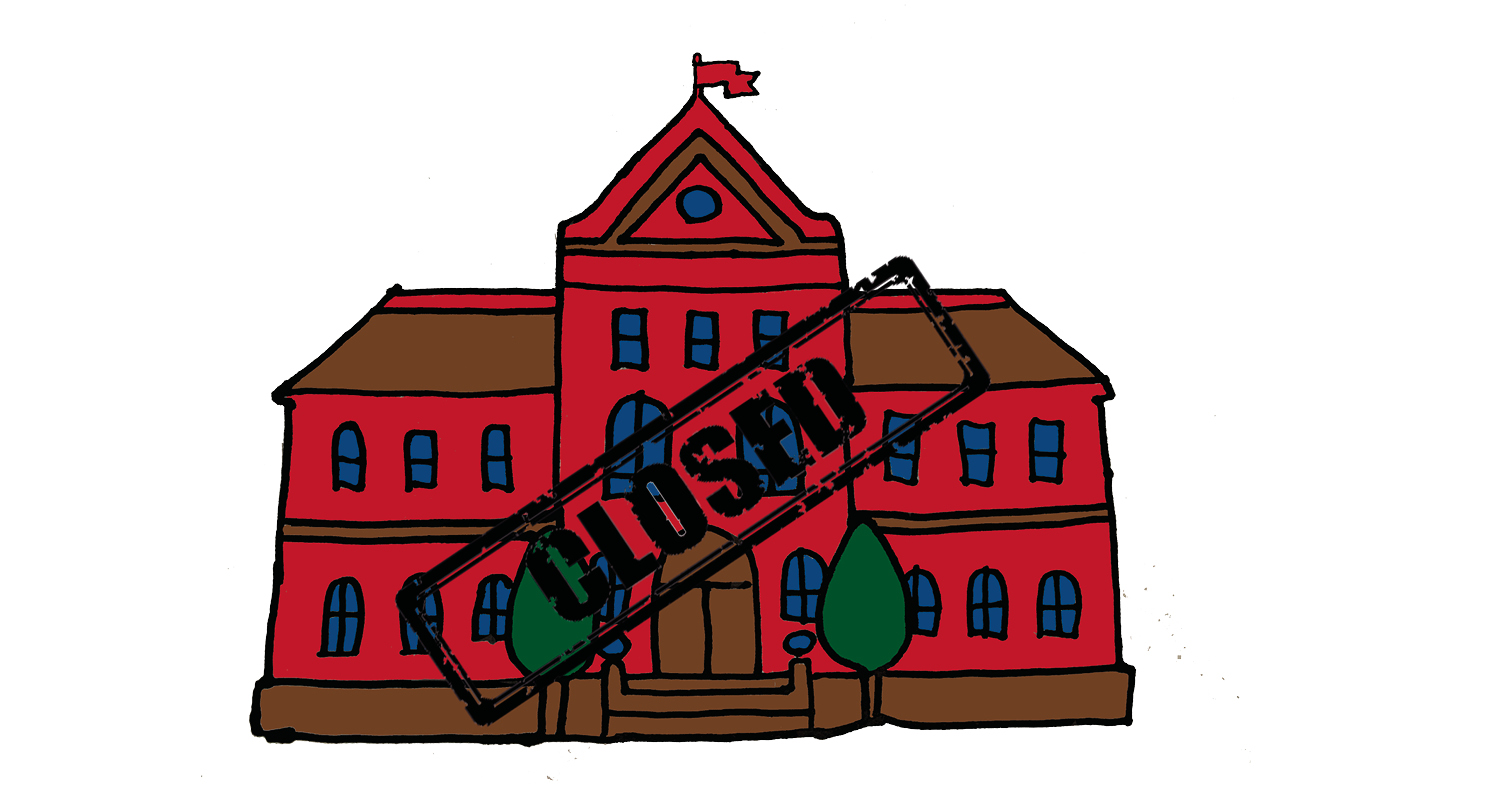




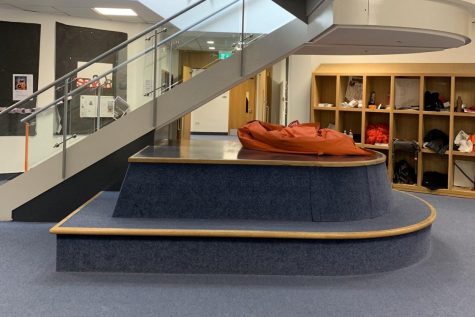



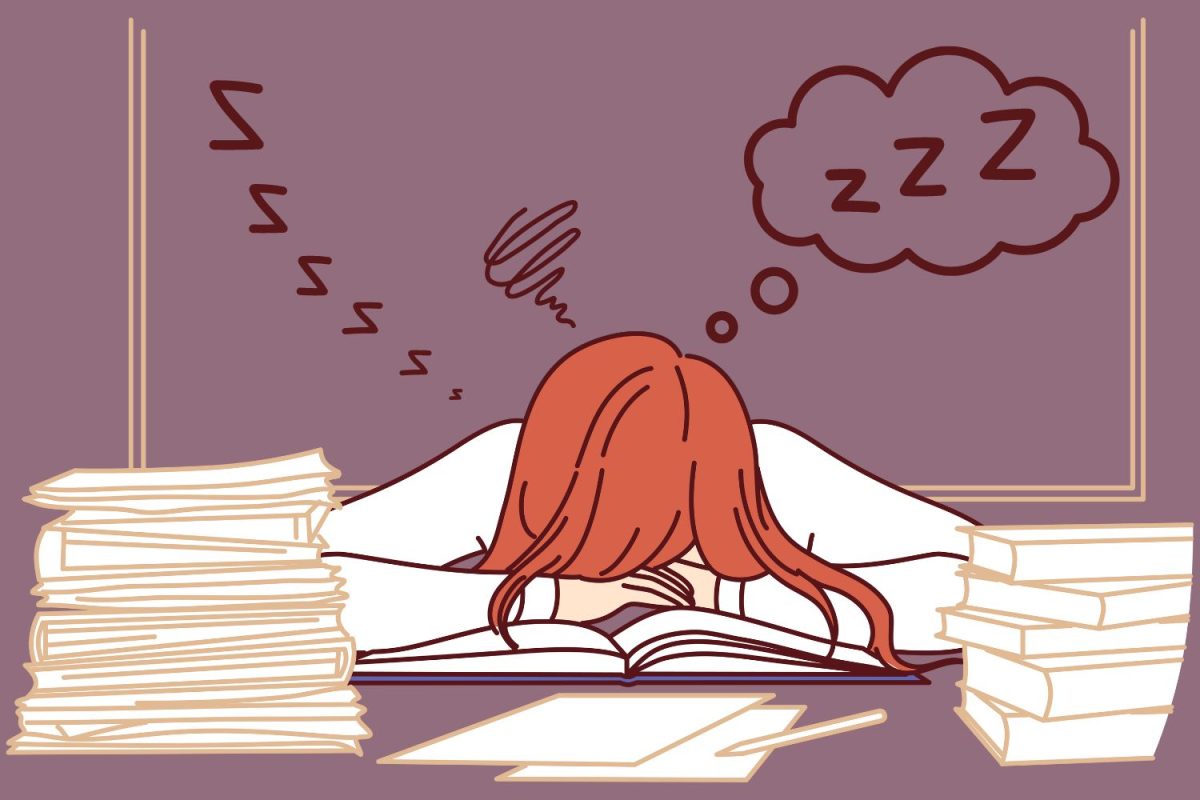
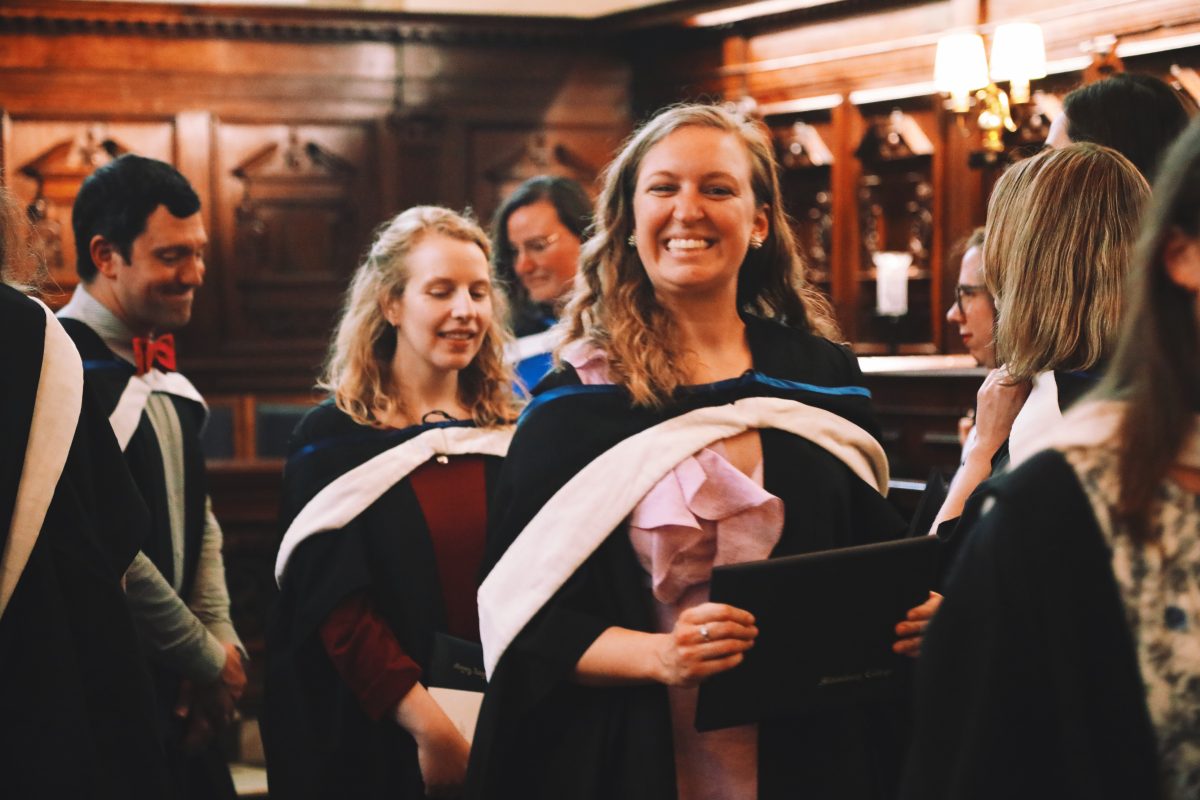
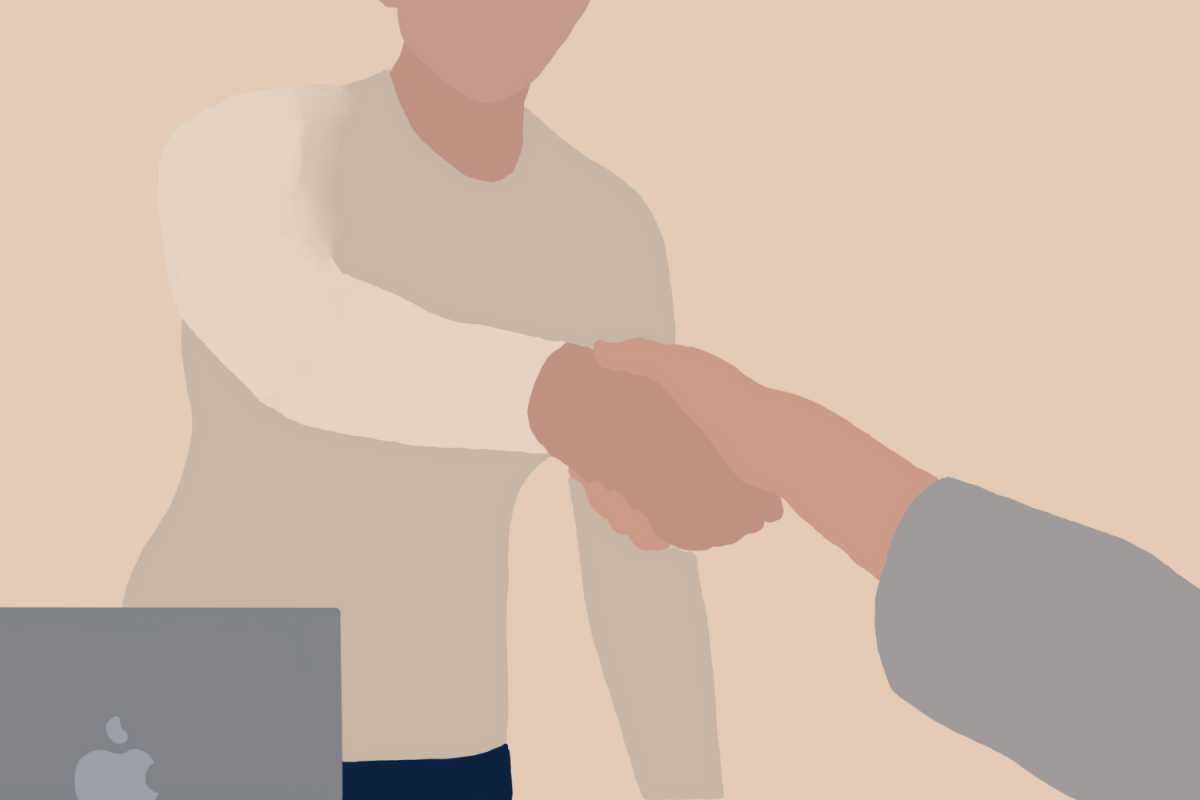
Peggy Elhadj • Apr 6, 2020 at 9:05 pm
excellent reporting!